Review of Lost In The Stars
Introduction
By some strange coincidence I read Alan Paton`s incredibly moving novel `Cry the Beloved Country` about six months ago. It`s one of those `classic` and much lauded books, published at the fag-end of the forties, that it`s difficult to get around to reading, though once read it`s easy to understand why it continues to be a popular seller to this day.
When I received The American Film Theatre`s Lost in the Stars, another in their ambitious stage adaptations to film, I knew that it was full of Kurt Weill numbers (with lyrics provided by Maxwell Anderson), but had no notion that it was an adaptation of Alan Paton`s novel about racial oppression and apartheid.
Originally a musical that met with great critical acclaim when it first showed on Broadway in 1948, the year the book was published, this film adaptation is a bit of a curio. (Film trivia fans may like to know that an earlier British film version of the book met with great critical acclaim too when it was released in 1951).
Filmed in Johannesburg in the early 1970`s, with no attempt to move it back in time to the late 1940`s from whence the book came, it`s a curious mix of stagy acting, almost documentary style location cinematography, and music and lyrics that can really only be described as a native German`s love of American Broadway. It takes a little getting used to - but the sensitivities and subtleties of the story are still intact and by the time it reaches its bitter climax, I for one found it hard not to shed a sympathetic tear. It`s a powerful story that, even in this stylistically off-kilter rendition has huge emotional depth.
Directed by Daniel Mann (Playing for Time) with a very small budget (these movies were made by AFT for one off simultaneous theatrical showings to subscribing culture-vultures), this focus on a few desperate lives (through the eyes of a sensitive and caring Minister) is really one of the most powerful critiques of the dreadful apartheid system that dominated life in South-Africa until relatively recent times.
Powerfully serious Brock Peters (To Kill a Mockingbird) plays Stephen Kumalo, a black Minister who leaves the relative safety and primitive comfort of his rural domain to go searching in the big city of Johannesburg for his son, Absalom.
Whilst there, he also seeks news of his sister who also left the village in search of her husband. None of the news is good and Kumalo`s faith is tested as he learns that his sister `…has found many husbands` and that his son, Absalom is in jail facing a capital murder charge. We learn that his son, who is expecting a child with his un-wed partner has become determined to do something (anything) to raise his family out of the inevitable and relentless filth and poverty of a life in Shanty Town, where his only option is to work in one of the many mines or factories for slave-labour rates.
NOTE: POTENTIAL SPOILER IN THIS PARAGRAPH
Needless to say, the trial is balanced against his son - he`s just another black that needs to be taught a lesson. Father and son face the inevitable with courage, dignity and mutual love, and Kumalo arranges a jailhouse marriage to Absalom`s pregnant sweetheart Irina (Melba Moore). Kumalo believes in truth and insists that by sticking to pure truth, justice will out. The climax of the film shows this not to be the case and it`s a tragic moment as we see Kumalo`s faith being stripped from him in a final tragic wailing to the skies.
Peters, who Weill described as "one of the great voices of American theatre," gives an almost operatic performance with stacks of emotive deep-growling vibrato if you like that sort of thing. Personally, despite being a fan of Weill`s work (Threepenny Opera, Porgy and Bess), I found the musical aspect of the movie the most unsettling and stylistically odd. There isn`t even a vague stylistic nod in the direction of real South African music throughout. But I guess that`s just a subjective thing.
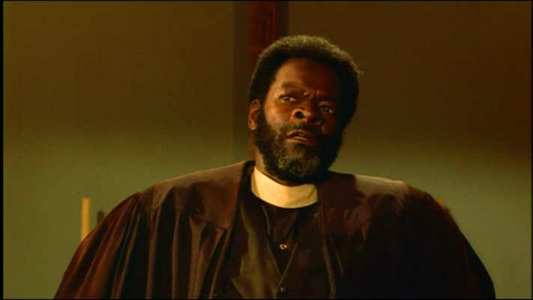
Video
This is a reasonable print of a low-budget film. The landscapes that open the movie had the potential (budget allowing) of being quite stunning, but here look grey and listless. Colour and contrast are a little subdued throughout though this is fairly typical of movies from the early 1970`s where the look was seen as gritty and stylistically desirable.

Audio
Generally good, though some wide-scenes are a little thin. It`s clear that, other than the many featured songs, that there has been very little post-dubbing. However, dialogue is crisp and clear throughout. Fans of Kurt Weill will enjoy the sweeping orchestration and music.

Features
· Theatrical trailer - which gives far too much away. Watch only after the movie!
· "Kurt Weill , Maxwell Anderson and Lost in the Stars" - a reasonably interesting text based essay by Michael Feingold, Chief Theatre Critic, The Village Voice.
· The AFT Cinebill for Lost in the Stars - a text based piece
· An Interview with Edie Landau -- Executive in Charge, The American Film Theatre - who talks about the American Film Theatre in concept and how, despite its eventual demise through shoddy admin, achieved some great results.
· Ely Landau: In Front of the Camera - is an interview with the man who is credited with starting it all.
· The American Film Theatre Trailer Gallery -- Includes a complete list of the AFT Films available to date, with some amusing trailers.
· The American Film Theatre scrapbook - photo gallery
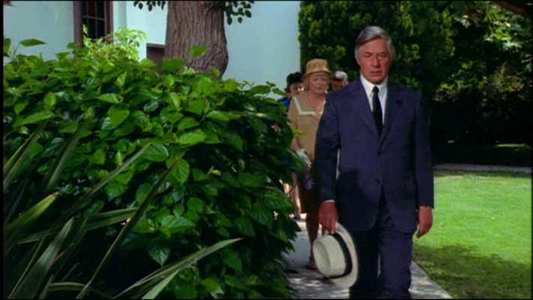
Conclusion
This early 1970`s AFT adaptation of Kurt Weill`s musical, based on Alan Paton`s book `Cry the Beloved Country` is a strange, mixed bag that seems to be greater than the sum of its parts. In truth, one or two performances are really stand-out - whilst others pale by comparison. Brock Peters is really impressive as the stoic minister in search of justice and truth. Melba Moore, as the pregnant girlfriend of his son, is also impressive here playing the vulnerable, frightened victim with great skill.
The overall effect, with static and stagy camera-work and off-kilter musical interludes results in a weird hybrid of a movie that is neither stage musical (much is shot in exterior locations) nor a movie-proper. The constant stream of German/American Broadway style songs takes some getting used to as well, especially as this was filmed as if in contemporary Africa.
But despite all this, I still got emotionally wrapped up in the story and by the time I reached the dramatic ending to the piece, I felt emotionally drained and found myself tying my shoe-laces to avoid others in the room seeing the traces of tears in my eyes. And in the final analysis I guess this is evidence that it all somehow worked.
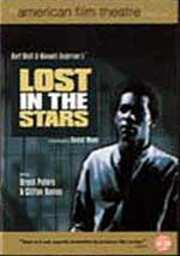

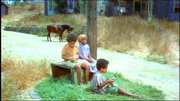


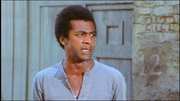

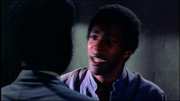
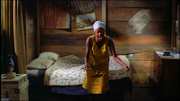
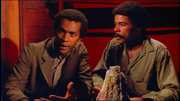
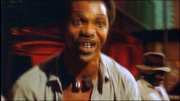

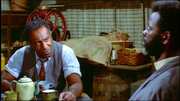
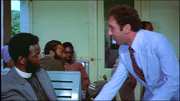

































Your Opinions and Comments
Be the first to post a comment!